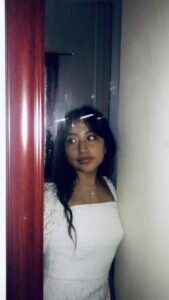Blog #3
A room surrounded by four walls with bars running vertically down. There is nowhere to go or hide, and an escape route seems impossible. With no privacy or the ability to be unseen, you are enclosed. Waiting for time to liberate you from this torture. I think that is how people envision imprisonment. But, Malcolm X, a well-known leader for black nationalism, had fully embraced and took a different approach when it comes to being imprisoned. Malcolm X used this secluded space from the outside world as a way to improve himself. He began to teach himself how to read, and with this skill came something powerful; freedom.
For Malcolm X, reading and writing wasn’t just a skill you learned from school and use without importance. He was self-taught while in prison and only had a dictionary, tablets, pencils, and I believe motivation as well. In the beginning, he “spent two days just riffling uncertainly through the dictionary’s pages… I began copying. In my slow, painstaking, ragged handwriting, I copied into my tablet everything printed on that first page, down to the punctuation marks. I believe it took me a day.” From there he soon completed the entire dictionary and was finally able to understand the words on a book. A whole new world opened when he could read his first book. But he also says that “In, fact, up to then, I never had been so truly free in my life.”
Literature was so vital for Malcolm X that it gave him a purpose and a sense of freedom to keep surviving. Physically he was trapped in his cell. But he had a deep-rooted connection with books, which erased that fact. He elaborates on this when he says, “Let me tell you something: from then until I left prison, in every free moment I had, if I was not reading in the library, I was reading on my bunk. You couldn’t have gotten me out of books with a wedge…months passed without my even thinking about being imprisoned.” Hence, through literature, Malcolm X got freedom he never felt before because through those books he was able to escape past those 4 walls of his cell. His prison sentence became meaningless; in the sense that, as he spent all his time in books, his time in prison would go by. This self-discovery leads him to realize that he didn’t have to be outside to feel free; his mind could go anywhere he pleased from reading a book. Literature and freedom may seem to not correlate, but once you lose yourself in the pages, you’ll find yourself being set free to a world that vanishes your reality.
 ot getting my point across in assignments.
ot getting my point across in assignments.
